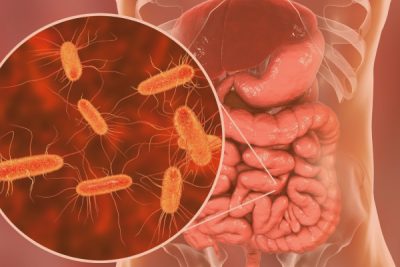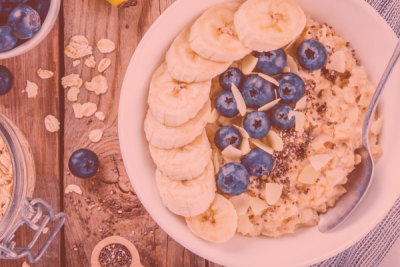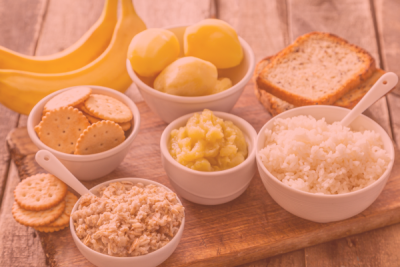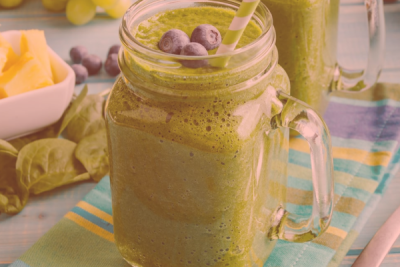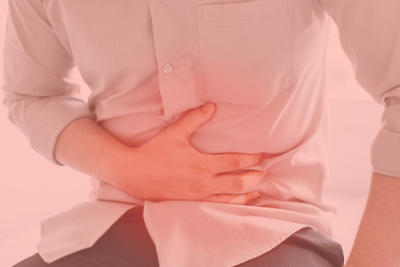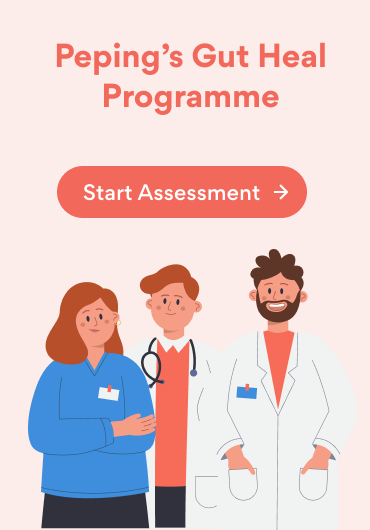How do you know if your gut is healthy? For many of us, eating is just a way to satisfy our hunger and give our bodies energy. Some people think that if nothing is wrong with digestion or getting rid of waste, it’s safe to say that gut health is good. Sadly, this idea is not always correct.
So, how do you know if your colon is healthy, and what can you do to keep it that way? Even though the idea of making changes to your current lifestyle may seem scary, it’s actually pretty easy to keep your gut healthy. First, we’ll talk about the basics of digestion, and then we’ll talk about how important gut bacteria is for healthy digestion. Last, I’ll talk about easy and useful ways to help gut health.
What exactly is the gut microbiome?
Microflora is a group of living microorganisms that live all along your digestive system, from your mouth to your anus. There are truly trillions of bacteria in the body, most of which live in the large intestine and help the body do many things. There are also yeasts, viruses, and protozoa in the gut, and all of these bacteria help keep the digestive system healthy in some way.
All of these organisms work together in a way called synergy, which makes your digestive system work as well as it can. In an ideal world, the bacteria would have more variety, just like a rainforest has many different kinds of plants, animals, insects, trees, etc. The bacteria also need to be in balance.
The following actions are caused by the bacteria in the gut:
- Helping to break down food so that nutrients are easy to get
- Helping to keep the mucous layer in good shape
- Vitamins such as B12, Folate, and Vitamin K2 are made.
- Helping to keep the defense system in good shape
- regulating the two-way flow of information between the brain and the gut. (This “Gut-Brain Axis” is very important and is one of the reasons we have “gut instincts” or “butterflies in the stomach.”)
As you can see, these bacteria are important for the health of the whole body, not just the gut. So, it’s important to make sure the “good” bugs are happy and doing well.
How to improve your gut health?
Medicate wisely
Gut health depends on having a healthy microbiome. One way to do this is to avoid medicines that kill bacteria and other creatures. For example, the following drugs can change the gut microbiome’s flora:
- Antibiotics
- Corticosteroids
- Contraceptive pills
- Acid-blocking medicines are called proton pump inhibitors or H2 blockers.
In general, it is thought that about 25% of all drugs hurt the gut microbiome in some way. Pesticides and other chemicals in the environment can also make the gut microbiome less diverse, which can lead to dysbiosis or an imbalance in the gut microbiome. It has also been shown that long-term worry is bad for the bacteria and other organisms that live in the gut.
Eat less sweet foodstuff
Good gut health requires good bacteria, which shouldn’t be a surprise. But what does this mean for our diets and ways of living? Well, you could start by staying away from sugary treats and artificial sweets. It is known that eating a lot of sugar can lead to gut dysbiosis, which is an imbalance of bacteria in the gut. Even though the link isn’t fully clear, it’s thought that an imbalance of gut bacteria can affect the immune system and the health of the gut lining, which can make you more likely to get sick or get sick more often.
Instead, you should focus on eating a wider variety of healthy foods. Not sure why? Your guts are made up of many different kinds of bacteria. Each kind of bacteria plays a different role in your health and needs a different kind of food to grow. The more types of bacteria you have, the more health benefits you can get from them. This is why a microbiome with a lot of different bacteria is thought to be healthy.
Eat more fruits and vegetables
Your mom was right when she told you to eat your vegetables when you were a kid. Some of the best sources of nutrients for a good microbiota are fruits and vegetables. How come? Vegetables have a lot of fiber, which your body can’t usually break down, but some bugs in your gut can. This, in turn, helps bacteria grow in the gut and increases the number of good bacteria that work hard to keep your gut healthy.
Try adding blueberries, green peas, broccoli, chickpeas, lentils, whole grains, kidney beans, and artichokes to your diet. All of these foods are high in fiber.
Consume fermented foods
Even if you don’t believe it, the trend of eating fermented foods isn’t just a fad after all. Fermented foods help the microbiome by making it work better and stopping disease-causing bacteria from growing.
Fermenting is the process that happens when bacteria or yeasts change the sugars in certain foods into organic acids and/or alcohols. Because these foods are fermented, they usually have a lot of Lactobacillus, a type of good bacteria that is good for your health. Yogurt, cabbage, kombucha, tempeh, kefir, and kimchi are all examples of fermented foods that are good for you.
Eat foods that are high in polyphenols
Polyphenols are chemicals that come from plants. They can be found in cocoa and dark chocolate (yes, you can eat more chocolate), grape skins, green tea, nuts, onions, broccoli, and red wine (yes, you read that right). Polyphenols have a number of health effects, such as lowering blood pressure and inflammation and lowering cholesterol levels and oxidative stress.
But how do flavonoids improve gut health? Polyphenols are hard for human cells to break down, so most of them end up in the colon, where gut bugs can break them down better. For example, the polyphenols in cocoa and red wine may help increase the number of Bifidobacteria and Lactobacilli (good bacteria).
Limit how much alcohol you drink
Your flora may also be hurt by drinking too much. Gastritis, swelling of the gut in which it gets red and swollen, is linked to drinking alcohol often. This kind of swelling can cause heartburn, constant pain, ulcers, and bacterial illnesses. Too much drinking is also linked to inflammation in the gut, which is a sign of a sick gut. Research shows that this kind of inflammation changes the microbiome, including how well it works, and can throw it off balance.
Lessen your stress
Stress isn’t just in your head. Think about how you feel when you’re nervous or excited. Gut health experts often talk about the “gut-brain connection” or call the gut “the second brain.” Even though we don’t know everything about their relationship, we do know that gut and mental health are closely linked. Research shows that anxiety and depression affect the gut and that the gut affects anxiety and depression. Anxiety and depression can make IBS more likely, and people with IBS are more likely to have these mental health problems.
Finding ways to deal with your mental health and stress may help you feel better and bring your body back into balance. Not sure where to begin? Try getting some exercise into your day. Research shows that exercise can improve the quality and number of bacteria in the gut that are good for health. Something as simple as a daily walk could help improve gut health.
Probiotic additives
As more people learn about how important gut health is, probiotic pills are becoming more and more popular. Even though probiotic supplements aren’t a cure-all for gut health, there is some proof that they can boost the microbiota and improve gut health in certain situations. If you are given an antibiotic, your doctor may also suggest that you take a probiotic pill. There is evidence that this may help avoid diarrhea caused by antibiotics.
Talk to your doctor if you want to take a probiotic pill. Even though these vitamins have been used for a long time without harm, especially by healthy people, people with weak immune systems are more likely to get sick from them.
Work out often
Moving around is good for a lot of different parts of the body, including the microbiome. Researchers have found that both with animals and with people, exercise increases the number of different types of good bacteria in the gut.
Several studies have shown that exercise and food can work together to improve gut health, but a 2019 review found that exercise alone may be able to change the makeup and function of gut bacteria without the help of diet. Researchers found that longer workouts and high-intensity aerobic training contributed most to the diversity and function of gut bacteria in relation to general health. They also found that people with a healthy weight are more likely to get the benefits of exercise for their gut health than people who are overweight or obese.
Refuse to consume any packaged or canned goods
Sugary processed meals and drinks are horrible for the gut microbiome and contribute to inflammation, so please try to avoid them. Instead, opt for unprocessed, whole foods and prepare meals at home. Apples, turnips, and celery are all examples of whole foods that are rich in antioxidants, fiber, and other nutrients that help nourish the gut microbiota. Substitute a pear for that bag of chips.
Get a good night’s rest
The quality and quantity of sleep you get have a direct impact on your mental and physical well-being. The risk of inflammatory disorders may be increased, according to the results of an animal study conducted in 2014. This risk may be due to the harmful effects of irregular sleep habits and disrupted sleep on the gut flora.
Create routines of going to bed and waking up at the same time each day to promote good sleep hygiene. Seven or more hours of sleep per night is recommended for adults.
Swap out your cleaning supplies”
One study found that disinfectant cleaning solutions can affect the gut flora in the same way that antibiotics can. Over 700 infants between the ages of 3 and 4 months were examined for their gut flora in the 2018 study. Study participants were twice as likely to have greater numbers of Lachnospiraceae gut bacteria, a kind associated with type 2 diabetes and obesity if they resided in houses where disinfectant cleaning agents were used at least weekly. Children who were not exposed to such high amounts of disinfectants had a lower body mass index (BMI) at age 3.
A Journey into the Intoxicating World of Alcohol and Gut Health
A Journey into the Intoxicating World of Alcohol and Gut Health
Takeaway
Fresh veggies and whole grains are good for you, while processed red meats, sugars, and saturated fats are bad for you, and it’s not just to help you lose weight and keep your heart healthy. Foods that are high in fat, sugar, and salt are bad for the gut. If you want to improve your gut health, stay away from processed cuts of meat, pastries, sweets, treats, chips, fried foods, and fast foods as much as possible. Keep them as treats every so often.
A bad gut doesn’t just lead to stomach problems. Due to the link between the gut and the brain, having a bad gut can cause mood swings, sadness, trouble focusing, and even skin problems like eczema. You may also find that you can’t get a good night’s sleep, which will make you feel tired and cranky all the time. Many people have these symptoms every day, and they are often put down to other things, like stress or just having a busy life. If this sounds like you, you might want to pay more attention to what you eat and how your gut feels. If you pay attention to your body’s signs, you’ll know when it’s time to look for gut health treatments and get your body back on track to health.



